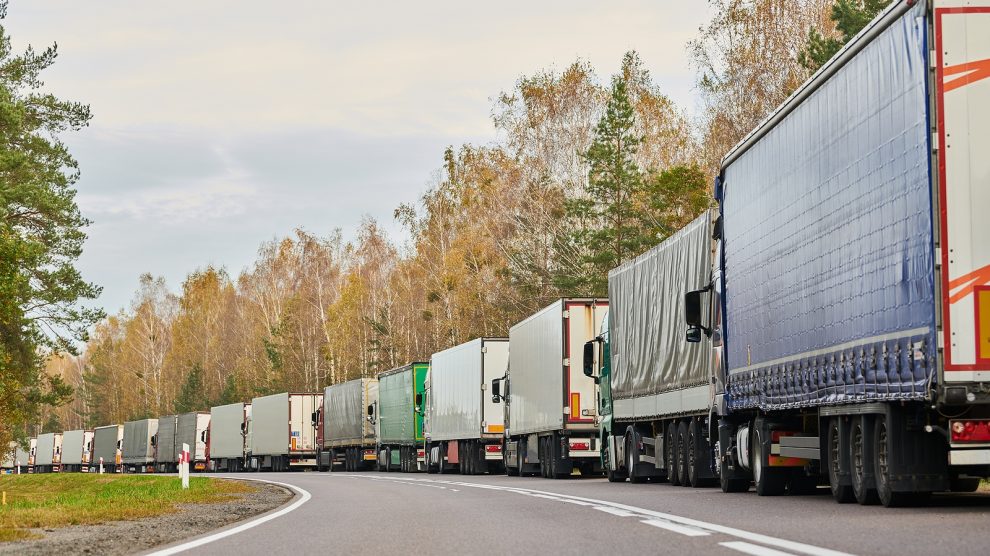Reducing average wait times at borders in the Western Balkans by three hours could add up to three per cent to GDP in each of the region’s six economies over the medium term.
Explicit acknowledgements of the impatience of Western Balkans nations and the European Union’s foot-dragging were staples of prepared remarks at the October 16 Berlin Process in Tirana, Albania.
“In the Western Balkans, your journey to the EU began more than 20 years ago. And, yes, it has been a slow road, too slow, disappointing to you in the region, and to us in the EU,” lamented European Council president Charles Michel, who then acknowledged that the 2030 deadline for expansion he set this summer “has been met with some scepticism in your region because you have been waiting for a long time.”
- Serbia-Kosovo deadlock requires a reality check
- For emerging Europe, Granada summits offer little
- Increasingly, the Western Balkans are ready for the EU. But is the EU ready for the Western Balkans?
But each acknowledgement of waning motivation was coupled with a pledge that, this time, the EU really was serious about the region’s accession.
“Dear Edi,” said Michel, addressing his host, Albanian prime minister Edi Rama. “I know you have compared enlargement to a bride that never shows up to the wedding. I would like to tell you that the bride is now actively preparing the wedding.”
European Commission president Ursula von der Leyen was even more specific, saying, “My first very clear message: Albania is on track to join the European Union.”
The Berlin Process
The Tirana summit was the tenth Berlin Process of the leaders of the EU and six countries of the Western Balkans (Albania, Bosnia and Herzegovina, Kosovo, Montenegro, North Macedonia, Serbia) since the format was founded in 2014.
At that time, the EU was overwhelmed with a migration crisis and put its enlargement on hold but wanted to maintain a means of ensuring stability, progress on reforms, and regional cooperation in the Western Balkans.
The October 16 meeting was the first time the format has been held in a Western Balkan nation. Its formal meetings were accompanied by parallel meeting of youth, civil society, and business organisations. This year’s summit coincided with the opening of a College of Europe campus in Tirana and an agreement for the mutual recognition of professional qualifications.
However, the biggest headline from the meeting was that a new EU growth plan would allow Balkan nations to enter portions of the EU Single Market in exchange for demonstrated reforms.
Integration with the Single Market
“Whenever there was an enlargement, not only those countries who accessed the European Union had a huge boost in their economic development because they joined the Single Market, but also the European Union improved because the Single Market got bigger,” said von der Leyen. “We want to basically open in specific areas the doors of the Single Market, the European Single Market, to Western Balkan companies.”
“We are opening it in areas like free movement of goods and services, road transport, energy, electricity, the EU’s Digital Single Market, and, very importantly, making cashless payments easier with a single European payment area, just to name a few elements,” she announced, noting that she hoped this would prove a “very strong incentive” for reforms.
The World Bank celebrated the prospect of closer economic integration and eventual EU accession for some of Europe’s poorest countries.
“The Western Balkans have a tremendous opportunity to tap a market of 450 million people in the EU,” said Antonella Bassani, World Bank Vice President for Europe and Central Asia.
“Experience across the world, as well as in the Western Balkans, has shown that for firms to grow and achieve economies of scale, it is essential to access international markets. Economic integration provides a fast track to the adoption of new technologies, to the flow of new ideas and innovations, and to the shift to higher productivity that underpins growth in middle-income economies.”
Barriers to the Single Market hold back the full economic potential of both EU countries and Balkan candidates. Every year, truck drivers wait around 26 million hours—almost 3,00 years—at border crossings in the Western Balkans.
The World Bank estimates reducing average wait times at the border by three hours could add up to three per cent to gross domestic product (GDP) in each of the six economies over the medium term. EU accession would increase gains by an additional six per cent for Western Balkans states while neighbouring EU member states like Romania, Hungary, and Bulgaria could experience gains of 0.2 per cent due to increased trade.
But in order for those gains to be realised, it is not only Western Balkan countries who must continue reforms—the EU itself must pursue internal reforms to ready its institutions for more members. In Tirana, Michel acknowledged the necessity of these reforms, but there is not yet consensus among member states on specifically how the EU’s decision-making processes should change.
Nevertheless, the growth plan provides a much-needed medium-term incentive for Balkan countries to continue their reforms as Brussels readies itself for 2030.
Unlike many news and information platforms, Emerging Europe is free to read, and always will be. There is no paywall here. We are independent, not affiliated with nor representing any political party or business organisation. We want the very best for emerging Europe, nothing more, nothing less. Your support will help us continue to spread the word about this amazing region.
You can contribute here. Thank you.


